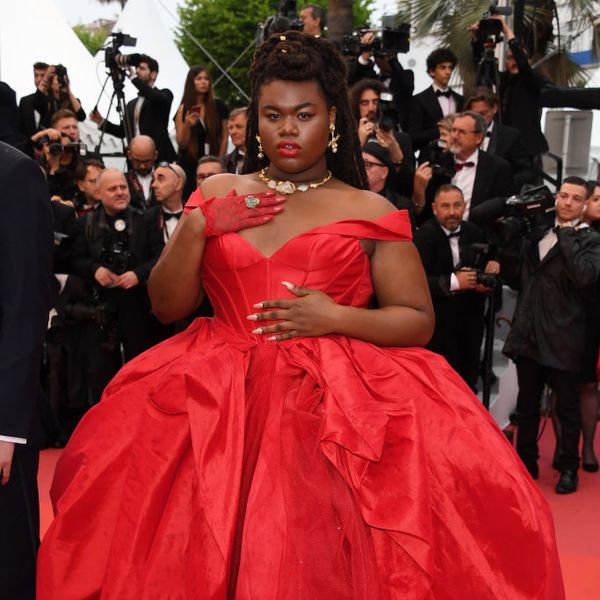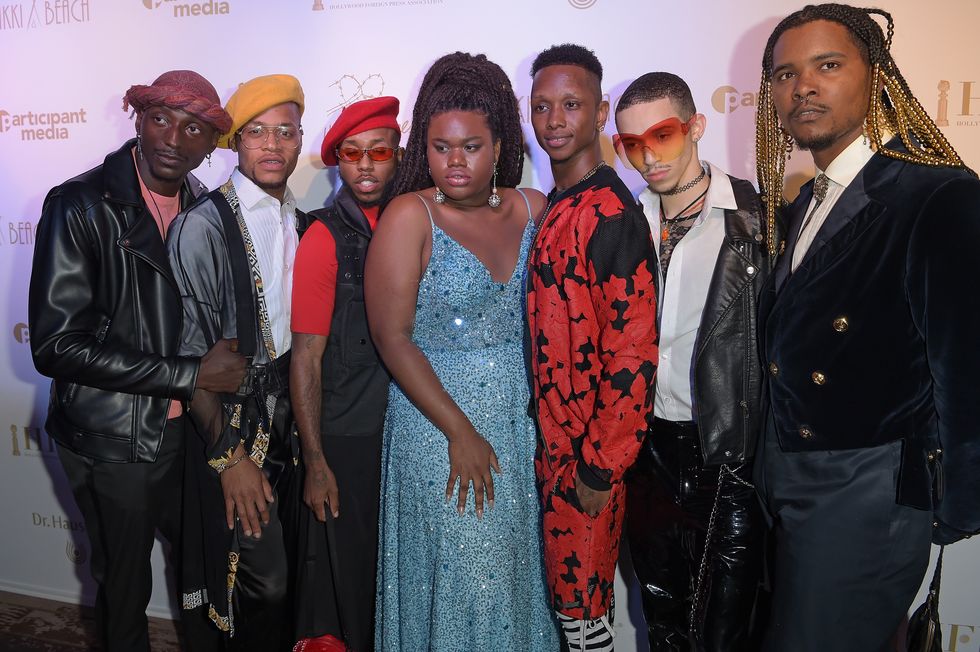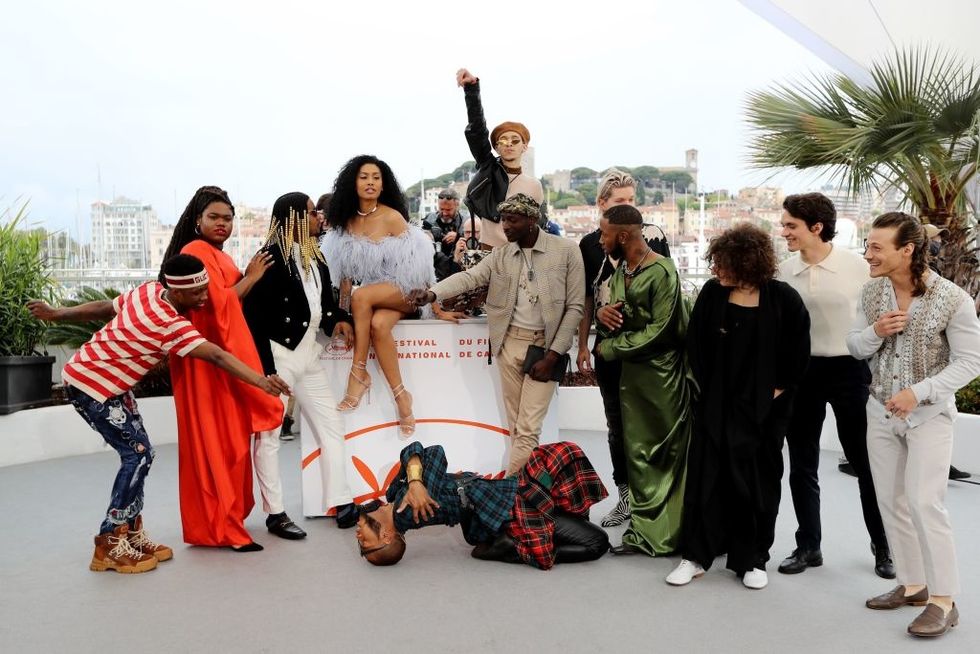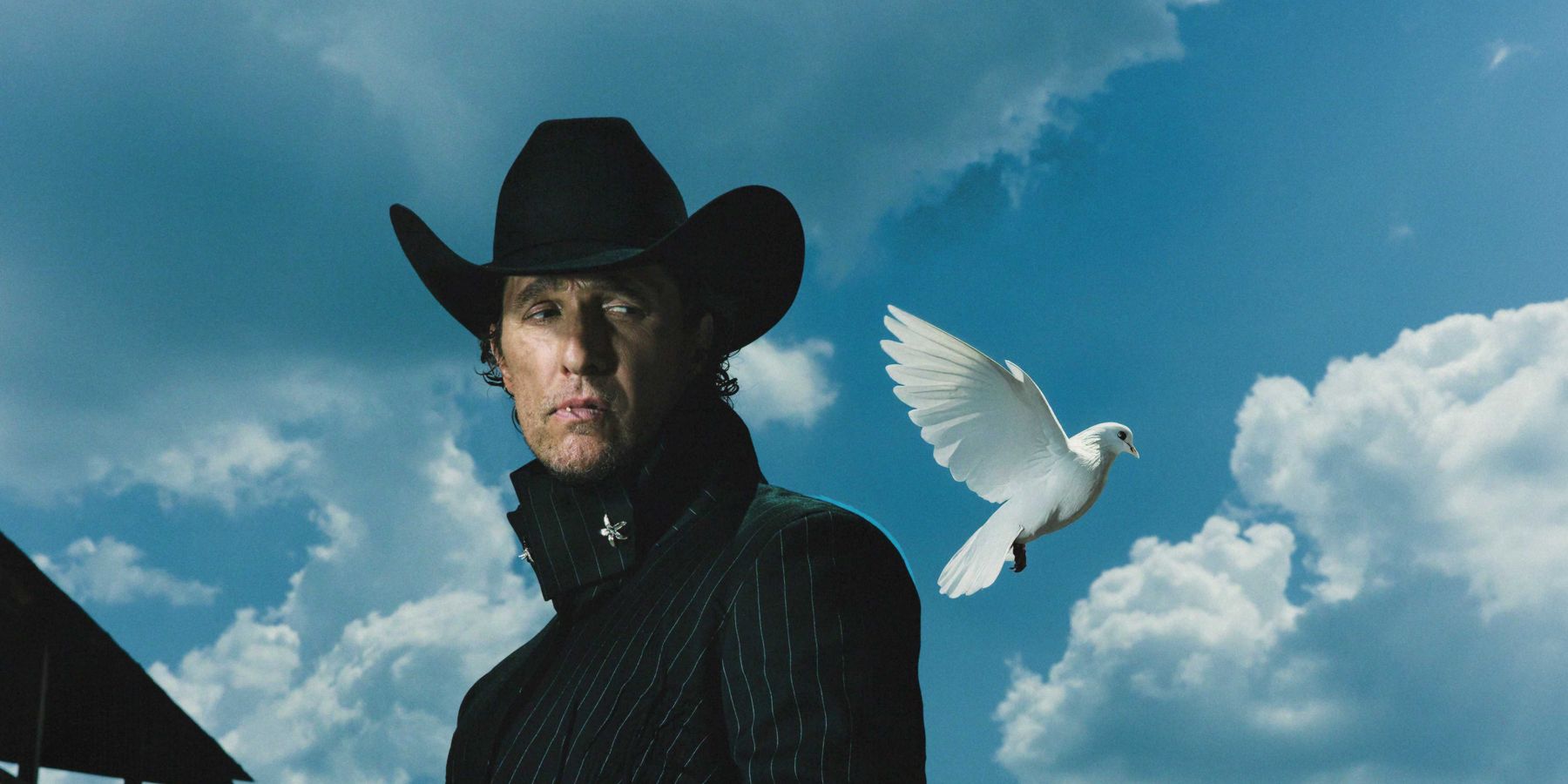
Jari Jones Made History at Cannes Film Festival
May 29, 2019
During Cannes 2019, Actor Leyna Bloom made history as the first trans woman of color to star in a movie premiering at the film festival. Bloom was the lead in Port Authority, a love story set in New York's kiki ballroom scene, produced by Martin Scorsese and written and directed by Danielle Lessovitz.
In the film, Bloom plays Wye, a 22-year-old girl, who catches the eye of Paul, played by Dunkirk's Fionn Whitehead. According to Variety, an intense affair blossoms between them as Wye introduces Paul to her ballroom community. Paul also confronts his identity and what it means to belong upon discovering that Wye is trans. Early festival reviews of Port Authority have called the film "vital" and full of "storytelling gusto and heart," while praising Bloom's performance as "dynamic."
Also making history at Cannes this year was actor and filmmaker — and PAPER Predictions nominee — Jari Jones. Jones worked on Port Authority as a cast member, script consultant, acting coach to Bloom, and then, ultimately, a producer on the film. Jones tells PAPER she became the first Black trans woman to produce a film competing at Cannes. The cast, made up of other queer Black performers within New York's underground POC-led ballroom scene, flew into France and became the first to vogue on the red carpet.
Not to mention, the film was Lessovitz's first one to vie for top honors at the festival. For her part, Jones stunned with her cast and crew family, namely, in a red Cisum Couture gown by Talia Coles and jewelry by Renato Cipullo. Jones' presence at Cannes alone proves that, as she writes on Instagram, "Even when they choose to kill us, we still find a way to live. [I'm] still here."
PAPER caught up with Jones on the heels of her big moment to talk Hollywood, her involvement with Port Authority, and the importance of complex trans characters in film.

How did you initially get involved with Port Authority?
I first auditioned for the film, through casting directors Damian Bao and Kate Antognini, who brought me in on their search for their lead. There, I met the director [Lessovitz], who has been following me on social media for some time, and wanted me to not only act in the film but also to be a script consultant. Eventually, I went from that to being Leyna's acting coach [once Leyna was cast as the lead], which led to me working as a producer on the film.
What was it like for you to be at Cannes this year?
It was such an awakening moment. Cannes sticks in our mind as one of the most iconic and prestigious red carpets in the world, all of Hollywood and the International Film Industry is there, essentially to celebrate and watch your art. Being on that red carpet in my most beautiful Black trans self was all I ever could of asked for, but seeing my brothers, Black queer men, vogue on that carpet, watching the world scream cheer and applaud for them, changed me. We were a cast, a family, of many firsts. I, being the first Black trans women producer to have a film compete at Cannes; Leyna Bloom was the first Black trans woman to lead a film at Cannes; our brothers being the first to vogue, let alone perform on the red carpet; and our director competing in Cannes with her first film.
What can you say about your experience navigating Hollywood as a Black trans woman?
Hollywood in my experience has been both beautiful and ugly — but more beautiful. It has really grown me an extra skin, but has also reassured the value that I have for myself. I have been told that my transness would get in the way of my success, I have been told that my Blackness will keep me in a box, and that my womanhood was in question, so I basically shouldn't push for cis roles. In all of that, I have been booked and constantly working, showing up and showing out, securing roles on major TV shows and films, becoming [a source of] representation for Black trans and queer youth, allowing them the space and imagination to be where I am standing.
"Our diverse representation on TV and films needs to also reflect trans people being loved, celebrated, and respected."
What do you think has changed for the better in the entertainment industry? What do you think needs to improve?
Where I think Hollywood has progressed at, is their first attempts at inclusion for trans and queer actors. We are starting to see more and more trans folks on major networks and films and not only putting them in the background, but as leads and features. Where I think Hollywood needs to move to, is different or more diverse representations of trans folks. As of now, most trans actors meet the standard of cis beauty standards or just high beauty standards, which in my opinion, harms the way we see trans folks in real life. Our media dictates how we talk, interact, love, and respect trans people in society, so our diverse representation on TV and films needs to also reflect trans people being loved, celebrated, and respected.

Photos via Getty
MORE ON PAPER
Entertainment
Cynthia Erivo in Full Bloom
Photography by David LaChapelle / Story by Joan Summers / Styling by Jason Bolden / Makeup by Joanna Simkim / Nails by Shea Osei
Photography by David LaChapelle / Story by Joan Summers / Styling by Jason Bolden / Makeup by Joanna Simkim / Nails by Shea Osei
01 December
Entertainment
Rami Malek Is Certifiably Unserious
Story by Joan Summers / Photography by Adam Powell
Story by Joan Summers / Photography by Adam Powell
14 November
Music
Janelle Monáe, HalloQueen
Story by Ivan Guzman / Photography by Pol Kurucz/ Styling by Alexandra Mandelkorn/ Hair by Nikki Nelms/ Makeup by Sasha Glasser/ Nails by Juan Alvear/ Set design by Krystall Schott
Story by Ivan Guzman / Photography by Pol Kurucz/ Styling by Alexandra Mandelkorn/ Hair by Nikki Nelms/ Makeup by Sasha Glasser/ Nails by Juan Alvear/ Set design by Krystall Schott
27 October
Music
You Don’t Move Cardi B
Story by Erica Campbell / Photography by Jora Frantzis / Styling by Kollin Carter/ Hair by Tokyo Stylez/ Makeup by Erika LaPearl/ Nails by Coca Nguyen/ Set design by Allegra Peyton
Story by Erica Campbell / Photography by Jora Frantzis / Styling by Kollin Carter/ Hair by Tokyo Stylez/ Makeup by Erika LaPearl/ Nails by Coca Nguyen/ Set design by Allegra Peyton
14 October
Entertainment
Matthew McConaughey Found His Rhythm
Story by Joan Summers / Photography by Greg Swales / Styling by Angelina Cantu / Grooming by Kara Yoshimoto Bua
Story by Joan Summers / Photography by Greg Swales / Styling by Angelina Cantu / Grooming by Kara Yoshimoto Bua
30 September




